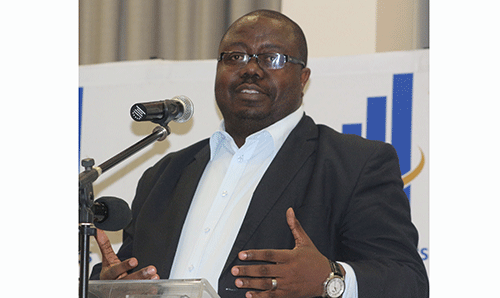Statistician-general and CEO of the Namibia Statistics Agency (NSA) Alex Shimuafeni has said notable efforts have been made towards improving data availability for indicators. However, much remains to be done in prioritising processes for strengthening and improving existing agricultural statistical systems in Africa.
He said statistics related to agriculture, nutrition and food security must be improved and enhanced as African national statistical systems play a central role in modernising data value chain processes, including data- generation, dissemination and administration.
“Civil society, academia and the private sector all have complementary and supplementary roles to play as significant alternative data producers,” said Shimuafeni whilst address a gathering during the commemoration of African Statistics Day on Friday.
The main purpose of such a day is to promote understanding about the importance of statistics in all dimensions of life, including society, the economy and the environment. The theme for 2022 is “Strengthening data systems by modernising the production and use of agricultural statistics: informing policies with a view to improving resilience in agriculture, nutrition and food security in Africa.”
This year’s theme is aligned with the African Union theme, ‘2022, the Year of Nutrition: Strengthening Resilience in Nutrition and Food Security on the African Continent’, and is intended to be a call to modernise data systems for the production, dissemination and use of agricultural statistics.
Shimuafeni stated: “The theme was chosen to raise awareness among decision-makers, technical and financial partners, data producers and users, including researchers, and the public about the importance of data and statistics in building resilience and ending hunger in Africa.”
UNDP country representative Alka Bhatia said without the generation of timely, reliable and disaggregated statistics, it will be challenging to plan, implement and monitor transformational development.
“Agriculture in Namibia has the potential to offer significant opportunities and solutions for inclusive and sustainable economic growth, create decent employment and wealth, promote gender equality and food security, and eradicate poverty and inequality,” observed Bhatia.
For this to be realised, Namibia needs to invest in the promotion of statistics awareness; the generation of timely, reliable and disaggregated statistics; while investing in data systems, capacity and technology infrastructure towards smart solutions.
Bhatia said there is a need to promote smart farming, a concept that focuses on providing the agriculture industry with the relevant infrastructure to leverage technology for tracking, monitoring, automating and analysing operations to make investment sense.
She gave the assurance that the UN system will continue to work closely with the NSA, other relevant government offices, ministries and agencies as well as civil society, academia, the private sector and other key development partners “to ensure that national statistical systems are strengthened and are utilised to inform evidence-based development planning and management.”
– psiririka@nepc.com.na



